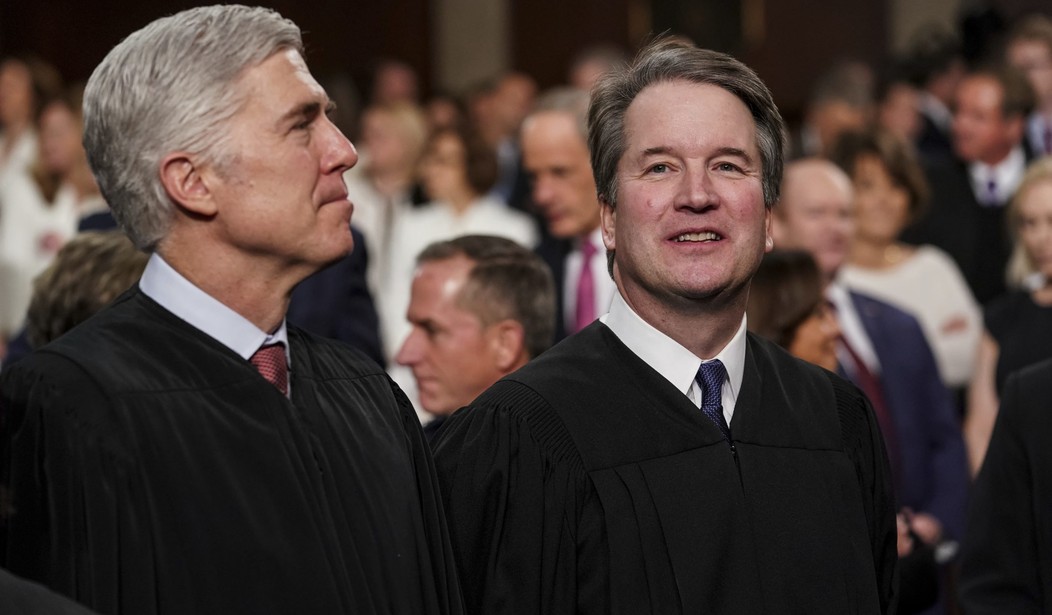The process of nominating and confirming judges has become an increasingly partisan and contemptuous process over the years, but apparently more so since Donald Trump took office. But the Trump years haven’t been a continuation of a long term trend but rather a shocking explosion of unprecedented partisan opposition, according to Thomas Jipping of the Heritage Foundation. Prior to Trump, the process of nominating and confirming judges was relatively noncontroversial.
In 1986, Democrats launched the first-ever filibuster against a district court nominee and then cast a record 42 votes against confirming Sidney Fitzwater. That mark was eclipsed just three months later, when the Senate voted 48-46 to confirm appeals court nominee Daniel Manion and then split 49-49 on a motion to reconsider that confirmation vote.
These conflicts over individual nominees, however, did not disrupt the “regular order” of the confirmation process. Before Reagan took office, the Senate had confirmed nearly 2,300 judges to the federal district, appeals, and supreme courts. Less than 4 percent had any opposition whatsoever. Reagan’s predecessor, President Jimmy Carter, appointed 258 judges in just four years (still a record), and the Senate bothered to take a recorded vote on just five of them.
That pattern continued after Reagan. Over more than two centuries, between presidents George Washington and Bill Clinton, only 3 percent of the judges confirmed to life-tenured courts faced any opposition at all.
Jipping noted that for most of our country’s history, “The Senate was indeed silent about the large majority of the president’s nominees, respecting his power to appoint them and stepping in only when individual nominees presented a genuine controversy.” But, under Trump, it’s something entirely different. “Since President Donald Trump took office, the regular order of the confirmation process has turned on its head,” Jipping explained. “The percentage of judicial nominees facing opposition – even a single vote – to confirmation has skyrocketed from the traditional 3 percent to more than 70 percent.”
More than 40 percent of all Senate votes against confirmed judicial nominees since 1789 have been cast in the last 30 months against Trump nominees. The average Trump nominee has faced 12 times the confirmation opposition as the average nominee of President John F. Kennedy to President Barack Obama. Nearly 40 percent of all votes in American history to filibuster judicial nominees have occurred since Trump took office in January 2017.
Have Trump’s nominees been less qualified than his predecessors? Nope. Not even close. “As a recent Heritage Foundation report documented, for example, Trump’s judicial nominees receive comparable or better ratings from the American Bar Association than nominees of previous presidents,” explained Jipping.
Jipping believes this “radical transformation” is the result of “weaponizing the confirmation process.” Those behind this unprecedented opposition aren’t interested in the records of the nominee anymore. “Today, the ‘unfit characters’ whose appointment Senate Democrats seek to prevent are defined less by the nominees’ own qualifications or merits than by the identity of the president who nominated them.”
Jipping added, “Today, Democrats are corrupting the entire confirmation process by turning it into another front in their war against the president.”
One element not considered by Jipping is that the Democrats’ reliance on the courts to impose their agenda has increased drastically in recent years. We’ve seen evidence of this with various Democrat-nominated district court judges blocking Trump administration policies. Democrats have changed the rules of the Senate to fit their short term needs, including nuking the filibuster when they were in the majority, and nearly destroyed Brett Kavanaugh’s life during his confirmation process.
_____
Matt Margolis is the author of the bestselling book The Worst President in History: The Legacy of Barack Obama. His new book, Trumping Obama: How President Trump Saved Us From Barack Obama’s Legacy, will be published on July 30, 2019. You can follow Matt on Twitter @MattMargolis










Join the conversation as a VIP Member